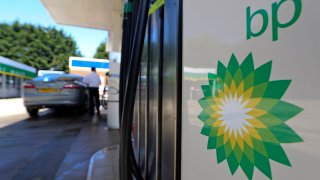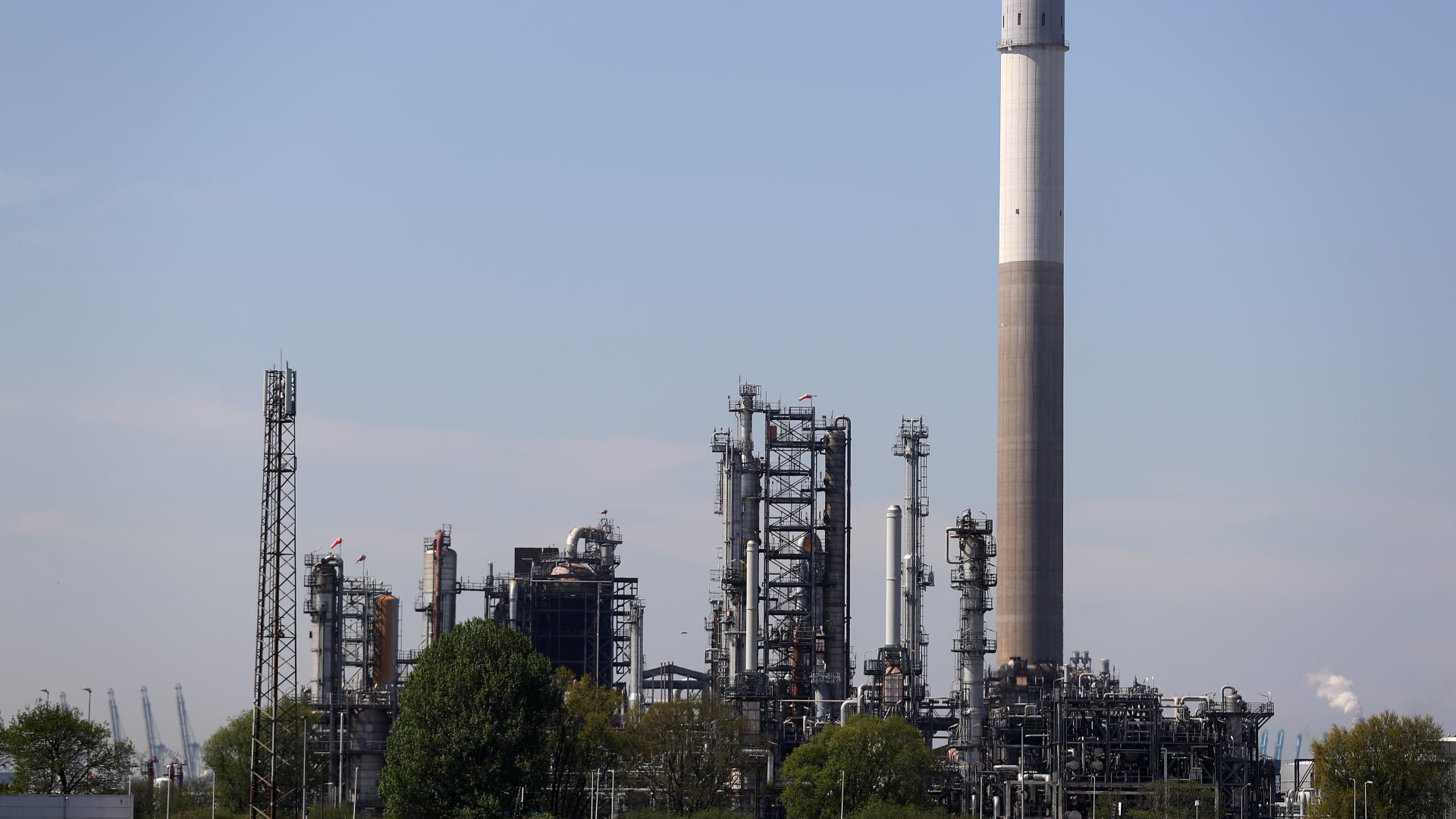
- BP posted a full-year underlying replacement cost loss, used as a proxy for net profit/loss, of $5.7 billion. That compared with a net profit of $10 billion for the 2019 fiscal year.
- Analysts polled by Refinitiv had expected a full-year net loss of $4.8 billion.
- BP CEO Bernard Looney described 2020 as a "pivotal year" for the company and the "toughest of my career."
LONDON — Energy giant BP on Tuesday reported a weaker-than-expected full-year net loss, following a tumultuous 12-months in which the global oil and gas industry faced a torrent of bad news.
The U.K.-based oil and gas company posted a full-year underlying replacement cost loss, used as a proxy for net profit/loss, of $5.7 billion. That compared with a net profit of $10 billion for the 2019 fiscal year.
Get Philly local news, weather forecasts, sports and entertainment stories to your inbox. Sign up for NBC Philadelphia newsletters.
Analysts polled by Refinitiv had expected a full-year net loss of $4.8 billion.
BP also posted fourth-quarter net profit of $115 million, missing analyst expectations of $285.5 million.
The company said its full-year results were driven by lower oil and gas prices, significant exploration write-offs, pressure on refining margins and depressed demand. It warned the ongoing coronavirus pandemic would continue to impact its performance.
Money Report
"It is definitely a tough quarter at the end, I guess, of a really tough year for everyone. And our full-year results were hit hard by Covid," Bernard Looney, CEO of BP, told CNBC's "Squawk Box Europe" shortly after the results were published.
"We have had the worst recession, I guess, in the world since the '40s. It was a brutal year, I think, for the oil business — negative prices, fuel demand down 14%, aviation down 50%, and of course we had adjustments to our planning prices which resulted in impairments and write-offs."
BP's latest figures come as energy companies attempt to prove to investors that they have gained a more stable footing on stronger commodity prices.
2020 was the 'toughest year of my career'
The oil and gas industry was sent into a tailspin last year, as the coronavirus pandemic coincided with a historic demand shock, falling commodity prices, evaporating profits, unprecedented write-downs and tens of thousands of job cuts.
It will likely become known as the worst year in the history of oil markets, the head of the International Energy Agency has previously said.
The world's largest oil and gas companies are now seeking to put it behind them, pointing instead to the prospect of an economic rebound in 2021 and hopes for a fuel demand recovery in the coming months.

Looney described 2020 as a "pivotal year" for the company and the "toughest of my career."
"The good news is that the business continued to perform really, really well and I'm incredibly grateful to our staff around the world for that. Strong safety, strong reliability, ahead of plan on taking out costs … and net debt down lower than $39 billion," Looney said.
Net debt fell $1.4 billion over the fourth quarter and $6.5 billion throughout 2020 to reach $39 billion. Looney said this showed the company was on its way to reaching net debt of $35 billion.
BP has undergone a "massive" year strategically, Looney said, adding that the mass rollout of Covid vaccines "can only lead to a good outlook for the year ahead."
Shares of BP were down over 3% on Tuesday morning. The firm's stock price has climbed around 6% year-to-date, having tanked almost 46% last year.
Oil prices
International benchmark Brent crude futures traded at $56.85 a barrel on Tuesday morning, up around 0.9%, while U.S. West Texas Intermediate crude futures stood at $54.11, around 1% higher.
Oil prices have steadily improved since the start of the year, supported by ongoing production cuts and the mass rollout of Covid vaccines.
However, major forecasters, including the IEA and OPEC, have warned the 2021 outlook for the oil market is still clouded by pandemic fears.
An upsurge in coronavirus cases in recent weeks has led to renewed lockdown measures and travel restrictions in some countries.






